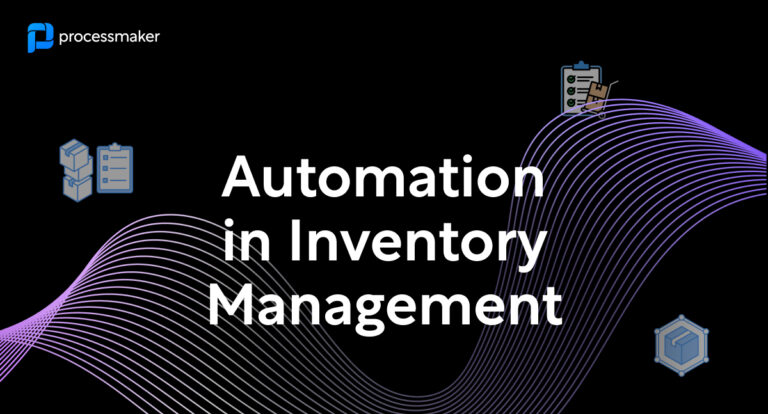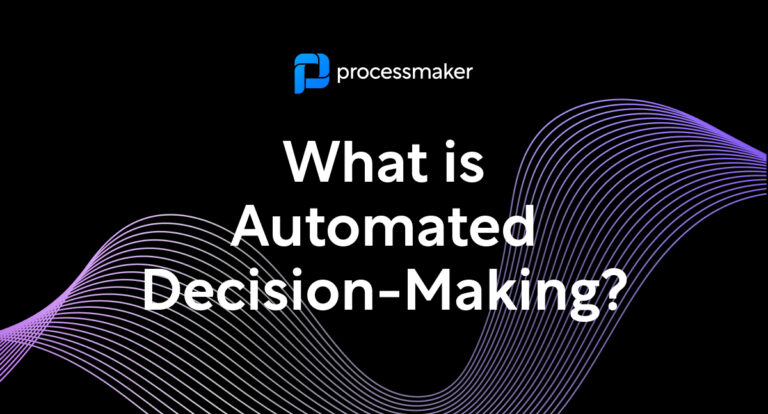Imagine streamlining your inventory management so effectively that you never lose track of a product, miss a reorder point, or overspend on storage again. That’s the power of fully automating inventory management automation. If implemented right, it can eliminate manual errors, enhance efficiency, and future-proof your business operations.
If you’re considering upgrading your current processes, this article will walk you through everything you need to know. From understanding why inventory automation is crucial, to learning when to introduce it, and exploring the history of automation in this space, we’ll cover it all. By the end, you’ll also know how ProcessMaker can breathe life into your inventory workflows.
When Should You Implement Automation?
Knowing when to automate your inventory processes can make or break your operation’s efficiency. Here are a few indicators that it’s time to make the leap:
- Repetitive Manual Tasks Slow You Down: If your team spends hours updating stock counts or processing purchase orders, automation can save countless hours.
- Frequent Errors: If mistakes during restocking or order fulfillment are causing financial losses or customer dissatisfaction, automation can bring consistency.
- Scalability Challenges: Growing businesses quickly outgrow basic inventory systems. If you’re struggling to manage growing demands, automation scales with your business.
- Complex Operations: Managing multiple warehouses, an extensive product catalog, or fluctuating seasonal demands? Automation simplifies complexities.
If any of these scenarios feel familiar, it’s time to bring inventory automation onboard and streamline your processes.
A Brief History of Automation in Inventory Management
The evolution of inventory management automation is a story of technological empowerment. Here’s a quick glimpse into its timeline:
- Paper-Based Logs: Decades ago, inventory was tracked manually on paper, a time-consuming, error-prone process.
- Barcodes and Scanners: The 1970s brought barcoding technology, revolutionizing inventory tracking. Scanners made it significantly faster to record stock levels.
- Enterprise Resource Planning (ERP) Systems: In the late 1990s and early 2000s, ERPs allowed businesses to centralize inventory data and integrate it across departments.
- Cloud-Based Systems: The 2010s saw cloud inventory management solutions, enabling real-time access to inventory data from anywhere in the world.
- AI-Powered Automation (Today): Inventory management has embraced artificial intelligence, predictive analytics, and IoT (Internet of Things) technology. Automated sensors now track stock levels in real time, while AI algorithms analyze sales trends for precise demand forecasting.
Through automation’s continuous evolution, businesses have gained tools that turn numbers into actionable insights.
What Areas of Inventory Management Get Automated?
Automation touches every corner of inventory management, transforming each process:
1. Stock Monitoring
Automated systems can track stock levels using sensors, scanners, and integrated software. This ensures accurate counts while eliminating manual stocktaking.
2. Order Fulfillment
From picking and packing to shipment tracking, automated workflows can potentially streamline every step of order fulfillment. This ensures faster delivery and fewer mistakes.
3. Reordering
Automated reordering systems trigger restock orders when inventory reaches predefined thresholds, ensuring critical stock never runs out.
4. Demand Forecasting
AI tools can analyze historical data and predict future demand trends. This keeps businesses prepared for peaks and prevents overstock issues during slow periods.
5. Returns Management
Automation in returns processing ensures that returned stock is logged quickly and accurately, minimizing losses and improving customer satisfaction.
When all these processes work seamlessly in tandem, businesses can unlock heightened efficiency, accuracy, and customer loyalty.
Benefits of Automation in Inventory Management
The potential rewards of inventory management automation are vast. Here’s how it can transform your operations:
- Real-Time Data Insights: Gain 24/7 visibility into stock levels, making informed decisions easier and faster.
- Reduced Operating Costs: Fewer errors and optimized stock levels help cut costs while improving profit margins.
- Enhanced Productivity: Automation handles repetitive tasks, allowing your team to focus on business growth.
- Better Accuracy: No more relying on manual, error-ridden systems. Automated tools ensure precision in stock-tracking and reporting.
- Improved Customer Satisfaction: With fewer stockouts and faster orders, customers enjoy consistent service quality.
The benefits aren’t just operational; they hit your bottom line, improving returns while reducing inefficiencies.
How Can ProcessMaker Help in Inventory Management Automation?
This is where ProcessMaker takes inventory automation to the next level. With its customizable workflows and powerful automation tools, ProcessMaker simplifies even the most complex inventory processes.
- Customizable Workflow Automation: Tailor inventory workflows to your business’s unique needs with an intuitive workflow tools.
- Data Integration: ProcessMaker integrates seamlessly with existing platforms, providing a unified view of your inventory ecosystem and bringing different tools and systems together.
- AI-Powered. ProcessMaker leverages AI, predictive analytics, and real-time data to have 180° transparency in operations and automate the more crucial high ROI processes and workflows.
- Scalable for Growth: Whether you’re a small business or scaling across multiple warehouses, ProcessMaker grows with your needs.
If you’re seeking a comprehensive solution that’s intuitive and powerful, ProcessMaker is the key to unlocking smart inventory management.
Optimize Your Inventory Management Today
The future of inventory management lies in automation, and those who get onboard today will lead tomorrow. By reducing errors, improving efficiency, and meeting customer demands head-on, automation can transform your business operations.
Want to take that first step? ProcessMaker is here to help. Our expertise in crafting tailored automation workflows ensures your inventory processes are smarter, smoother, and more effective than ever.





